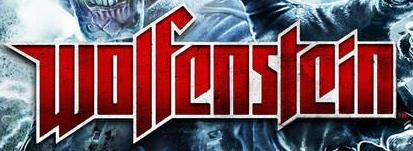
|
|
A Review of Wolfenstein: Starring Max Payne as BJ BlazkowitzWhen they dropped the retail price on Wolfenstein my eyes lit up with dollar signs and for once in my life I bought a new game close to its release date. After I played it through once I realized why they were forced to drop the price. Wolfenstein is a lot like Deus Ex: Invisible War. Neither game was terrible or a bad game per se, but they are both extremely disappointing when considered in light of their legendary prequels; the following statements which describe Wolfenstein could equally apply to Deus Ex: Invisible War. The most recent Wolfenstein game is significantly different from Return To Castle Wolfenstein in terms of gameplay and design, to the point that making Wolfenstein a Wolfenstein game seems kind of like a cynical abuse of the franchise. I will start out by describing the major gameplay differences between Wolfenstein and Return To Castle Wolfenstein, and afterwards describe many of the smaller details that make the differences between the games even more jarring. Return To Castle Wolfenstein, and even Wolfenstein 3D, where much more difficult than Wolfenstein. I have played both Return To Castle Wolfenstein and Wolfenstein on the default difficulty level, and Return To Castle Wolfenstein was challenging from the very beginning of the game. In contrast Wolfenstein didn't get difficult until the last quarter of the game. I found myself going through much of the game killing a great many enemies using the bayonet on the Kar98k because I could. I did not need to start playing seriously, use any special weapons, or use any Veil powers for general combat until around the last quarter of the game. I basically never died until the last quarter of the game. I expect that this was due to some kind of asinine management decision to make the game "accessible" by making Nazis with submachine guns no match for a player with a sledgehammer. One reason for this extreme easy level of difficulty was the extreme poor accuracy of all the enemies. Usually in FPS games I complain how everyone is much more accurate with guns than I am in real life. In Wolfenstein the Nazis are far worse shots than I would be in real life. Naturally, though, at the same time BJ Blazkowitz has pinpoint accuracy when using iron sights even on weapons without any of the purchasable accuracy upgrades, so a great many firefights tended to consist of me casually popping heads with the Kar98k using iron sights with "aim assist" toggled off in the options menu while completely ignoring the hail of incoming fire from the computer controlled enemies. In many cases as long as there weren't too many enemies it was possible to defeat them all by running in a zigzag with Veil Sight activated and simply stabbing them with the Kar98k bayonet upgrade. (I can't begin to imagine what "aim assist" actually does since the iron sights seem to be pretty much 100% precise.) Another reason the game was so ridiculously easy, and is so different from its predecessor, was that the game designers chose to go with the now-ubiquitous Call of Duty 2 damage system. That's where any damage the player sustains magically goes by itself if he can get behind cover and not be hit for a few seconds. I do not understand why anyone thinks this system is a good idea for a game with any horror elements, or even a game that tries to be challenging. In Return To Castle Wolfenstein the player had a health bar that went down with each hit and could only be replenished by collecting health items. In this way, the older game was much more challenging, since essentially any mistakes or imperfections in your gameplay would have lasting consequences. All of the older Wolfenstein games had thematic elements of survival. You were a prisoner of war lost in a labyrinthine enemy base who, in order to survive, would eat leftover enemy food, dog food, and even human remains, if your health got low enough. You constantly were looking for ways to boost your health level and as it got lower and lower you felt your tension while playing rising. This was true in Wolfenstein 3D, and was carried over in Return To Castle Wolfenstein where you started out as an escaped POW and likewise could regain health by eating leftover food off of the enemy's tables, or you could kill a man and take his liquor. Damage having longer-term consequences also created more tactical realism and challenge, another area where Wolfenstien falls short of its predecessor. In Return To Castle Wolftenstein there were many levels with wide open spaces and actual military-style objectives where enemies would populate bases where they would behave differently depending on whether or not they had been alerted. There were a few suppressed weapons (a suppressed Luger, a supressed Sten, and a modified Garand with rare cold-loaded cartridges) which had to be used judiciously, in contrast to Wolfenstein where the player can simply purchase a sound suppression upgrade for all of his rifles and idly blow thousands of rounds through those weapons with no trade-offs or reduction in damage. In many cases it was possible to find a good spot and snipe the enemies with a scoped Kar98k, but it was also possible to get counter-sniped for a great deal of damage off the life meter, so even that approach required caution and situational awareness. In Wolfenstein, even if the enemies should be so lucky as to hit the player while he is as far away as he can be in the cramped console-style short distances characterizing the levels, it really doesn't matter because it just means that the screen will flash red a little bit before the damage magically heals and there are no consequences for having been hit. Wolfenstein attempted to add role-playing elements to the game but these were done (for lack of a better term) in a half-assed way. There are optional quests and characters, but there is only one way the game will let you interact with the characters, which is to perform their quests; there are no dialog options or conversation trees. There are maps which the player frequently re-visits, but there's nothing to interact with in the maps. The maps don't change and there are no characters that aren't completely generic. The maps simply get re-populated with enemies and as the player you kill the enemies off in the exact same way you did just 20 minutes ago. Finally, Wolfenstein lets you upgrade your weapons, which is hilarious. Basically the game designers took contemporary weapon design concepts, like specialty high capacity magazines, or after-market muzzle break gas venting systems, or sound suppressors that are capable of working perfectly in conjunction with automatic fire, and 1940s-ized them, and retroactively drew pictures of what various World War II era weapons could have hypothetically looked like if someone had applied these accessories to them. Although this lets the player upgrade and personalize his or her weapons over the course of the game, I find the affect comedic, especially since in my opinion this makes a lot of the weapons so powerful that the game becomes even less challenging. On a more subjective note, Wolfenstein seemed less scary than Return To Castle Wolfenstein. I think that Return To Castle Wolfenstein did a better job with horror. The supernatural enemies were more, well, horrific. They were a lot harder to kill, for one thing. I remember how there were skeleton-looking enemies with metal shields and if you opened fire on them your bullets would ricochet and would often hit you. This in turn was scarier and caused more tension because you had an actual life bar that went down when this happened. I think Return To Castle Wolfenstein was grislier as well. It was more grotesque and explicitly depicted things like torture and nightmarish medical labs with blood and guts everywhere. Wolfenstein tries to give a scary atmosphere but it feels like they toned it down to make it more socially acceptable. Honestly, there's a limit to how much tension you feel when playing a game if you regenerate damage in a matter of seconds. Towards the beginning of Wolfenstein a lot of maps had sledgehammers and sometimes axes lying around. It was possible to pick up these melee-only weapons and run around killing enemies with them. The axe would actually decapitate and dismember enemies. So whenever possible to make the game more challenging and fun I would use the sledgehammers and axes instead of firearms. Most enemies had such poor accuracy that you could go Kill Bill on their asses. However, I noticed that at a certain point in the game sledgehammers and axes stopped appearing. I got the feeling that the game designers had forgotten about them by the time they'd gotten around to creating the later levels. However, the fact that there used to be sledgehammers and axes lying around and all of a sudden there weren't anymore created an inconsistency which hurt my immersion in the game world. Ever since Castle Wolfenstein came out in 1981, the protagonist of the game never talked. BJ Blazkowitz was completely silent in Return To Castle Wolfenstein even as characters in cinema scenes around him talked. The only time he ever really participated in a conversation was when, in one cutscene, he chambered a round after the person he just met bravely told him that he wouldn't spill any secret military information. For some reason in Wolfenstein Blazkowitz is talkative as hell and doesn't say anything besides for generic good-guy hero lines. That's actually a pretty different character portrayal than a man who wordlessly kills hundreds of men, confronts someone with key information, and instead of saying anything just goes and chambers a round, all the while having subsisted on leftover table scraps and sips of hard liquor. It's like taking Golgo 13 and making some kind of sequel where he runs around acting like Toby Keith. Indeed, between the John Woo style intro cinematic, bullet time Veil powers, and BJ's ahistorical leather jacketed look and motor mouth, BJ Blazkowitz really seems like a verbally boring drug-free version of Max Payne. He looks like Max Payne, he dodges bullets like Max Payne, he regenerates damage more readily than Max Payne, but he has to be a bland generic good guy so he doesn't make Max Payne wisecracks or abuse painkillers. He's got a completely different look and feel than the downtrodden-but-tough spelunker survivor we came to know from the earlier Wolfenstein games. All in all, Wolfenstein would be perfectly fine as a generic fantasy-infused World War II shooter, but for a Wolfenstein series game it is out of step with its predecessors and would probably be profoundly disappointing to most fans who have been waiting for a quality sequel since Enemy Territory. |
|
| -- Wounded Ronin (10/04/2009) | |
|
|
|

|

|
||||||||||||||||||||||||||||||||||||||||||||||||||||||||||||||||||||||||||||||||||||||||||||||||||||||||||||||||||||||||||||||||||||||||||||||||||||||||||||||||||||||||||||||||||||||||||
|
|
||||||||||||||||||||||||||||||||||||||||||||||||||||||||||||||||||||||||||||||||||||||||||||||||||||||||||||||||||||||||||||||||||||||||||||||||||||||||||||||||||||||||||||||||||||||||||
| © 2026 ParryGamePreserve |







